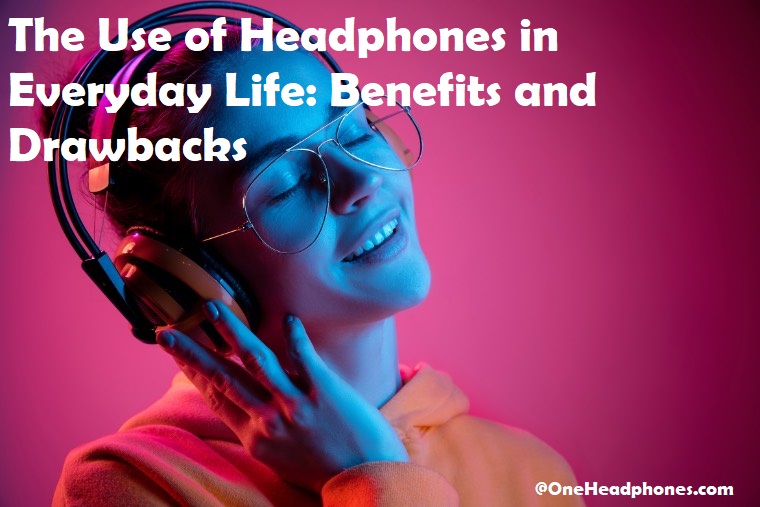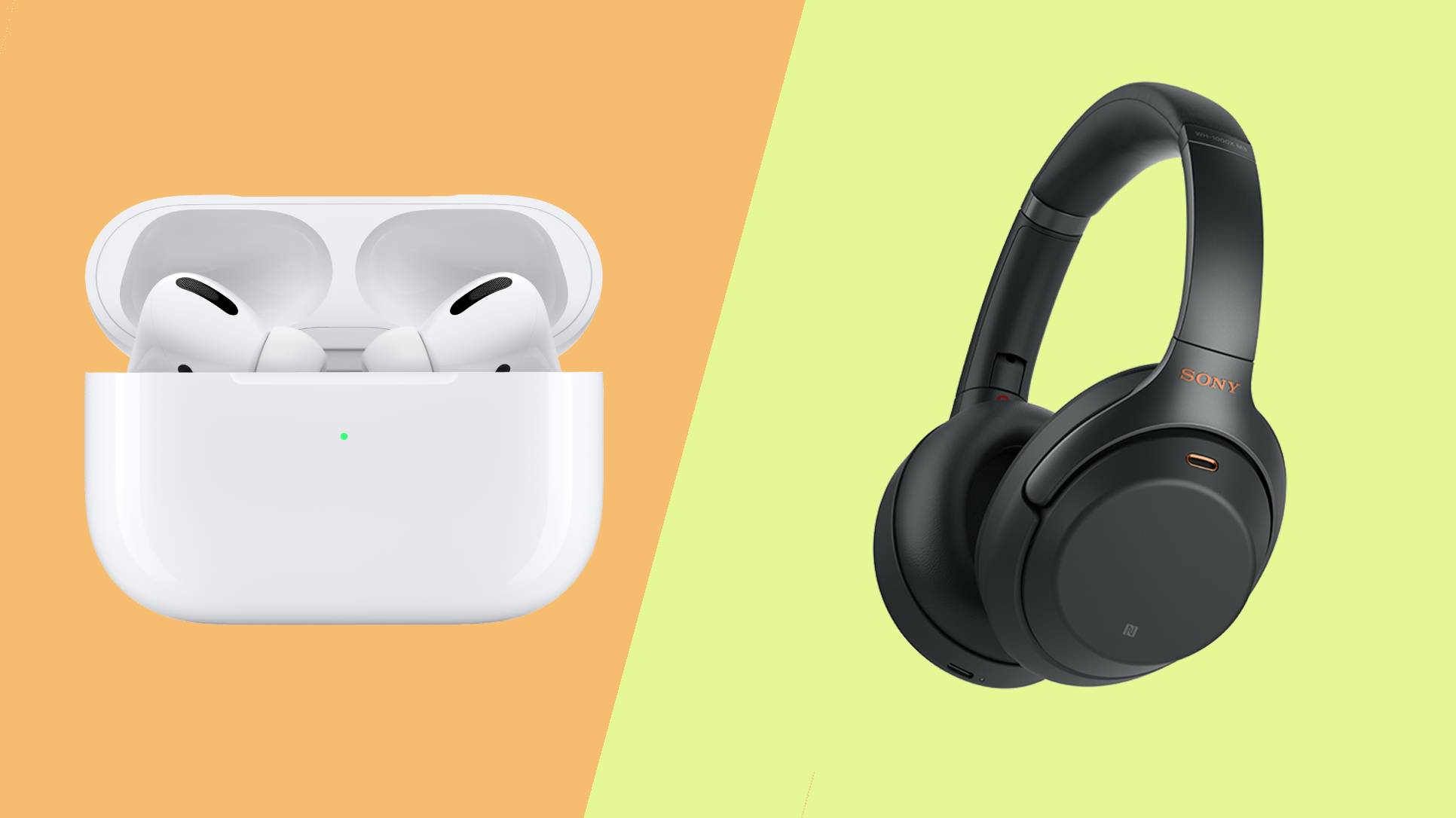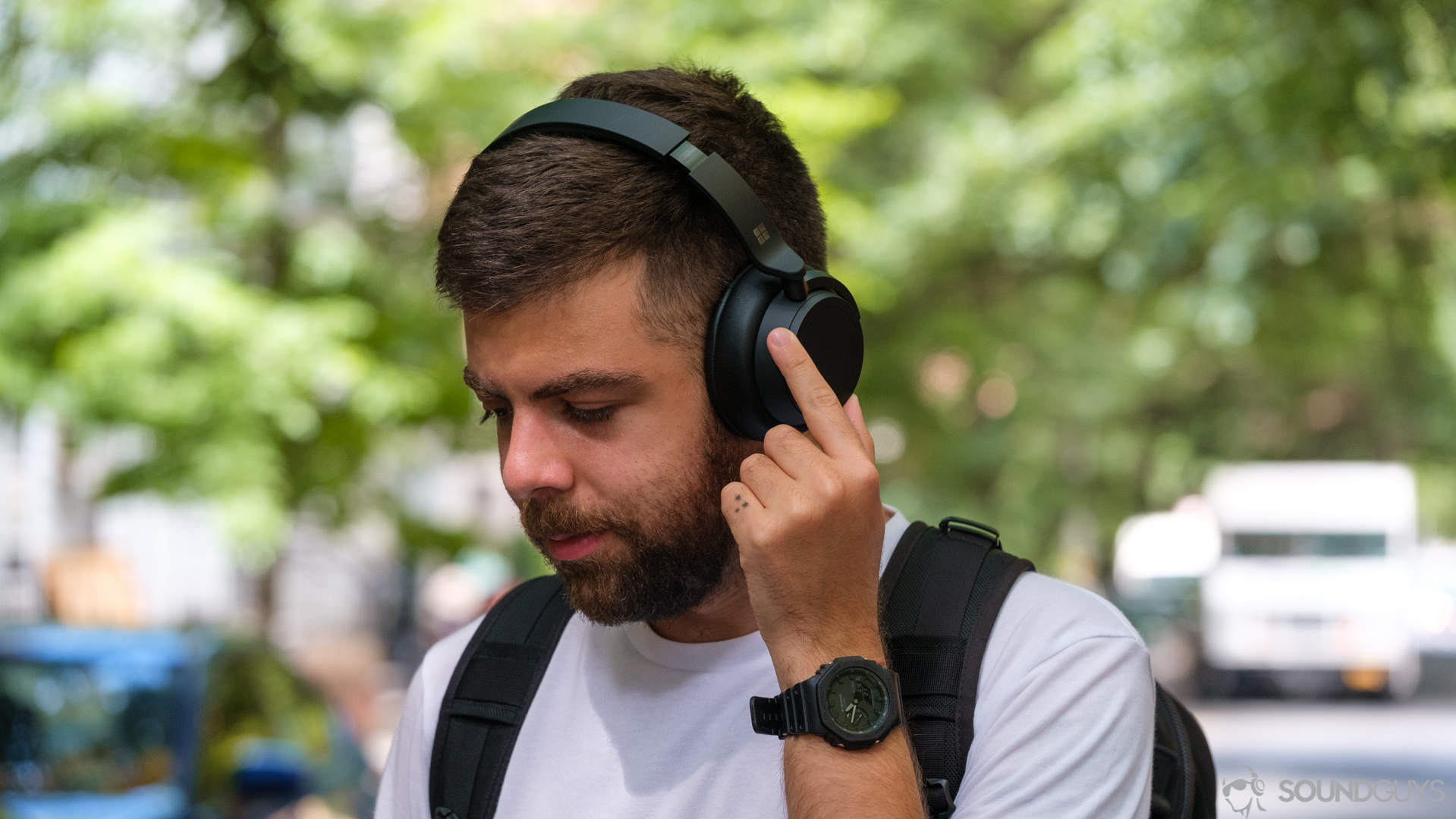Are you considering buying headphones but not sure of their implications in your everyday life? Well, this comprehensive guide will inform you of the advantages and disadvantages of using headphones. You’ll be able to make an informed decision about this important purchase.
Stay tuned as we explore how headphones can change your world!
In the 21st century, headphones provide people with unprecedented access to their own personal listening experiences. This has led to them becoming a central part of many lives, offering desirable features like Portability, Comfort and Logistical efficiency. The technology behind headphones allows them to provide users with crystal-clear sound quality that is practically unrecognizable from live music performances.
Yet while they offer an immense amount of benefits (discussed in Section II), the routine use of headphones can also present many issues that should not be overlooked (discussed in Section III). In this guide, we will outline and explore the various advantages and drawbacks associated with using headphones in everyday life. Ultimately, it is important for each user to consider both sets of pros and cons in order to make informed decisions about how to use headphones safely and comfortably.

Explanation of topic
Headphones are a common staple in our lives, with many of us relying on them for hours of entertainment or work-related tasks. Whether wired or wireless, headphones come in all shapes and sizes, feature varied sound quality and have extensive applications as part of our daily activities. As technology has advanced more options have emerged such as noise-cancelling capabilities and even augmented reality versions that let us escape from reality into a digital world. As beneficial as headphones can be, there are also risks associated with their use that should be considered.
This guide aims to provide an overview the benefits and drawbacks associated with using headphones in everyday life. It will look at the types of headphones available today, their positive uses for different activities, and potential issues one should be aware when using them regularly. In addition to this information, some basic advice about headphone use will also be provided to help ensure responsible habits are maintained while still taking advantage of the benefits they offer.
Importance of topic
The use of headphones in everyday life is a widespread phenomenon. We all use headphones to listen to music, watch videos, or even conduct work calls. Hearing protection is essential for many people, as well as the fact that it offers us the convenience of portability and cordless use in some cases. There are both benefits and drawbacks to wearing headphones on a regular basis, including comfort level, acoustic accuracy, sound quality, and even safety considerations. It is important to consider these aspects when deciding whether or not they would be appropriate for your specific needs and lifestyle.
In terms of comfort level, headphones provide a snug fit that eliminates external distractions while keeping your ears at a comfortable temperature. Additionally, for those who regularly need high levels of concentration and focus, the soft cushioning of most modern headphone models can help block out background noises without creating unnecessary discomfort or pressure points from wearing the device over long periods of time. Acoustic accuracy also needs to be taken into consideration when choosing headphones; some models provide more passive noise cancellation compared to others due to their ability to block out certain sounds more effectively than other designs. Finally, sound quality can be another major factor for many people who are looking for an immersive listening experience; higher-end headphone sets generally come with better speakers which provide a more accurate sound representation than low-quality counterparts due to their improved components.
When it comes to safety concerns associated with using headphones frequently, making sure that you are aware of your surroundings while utilizing audio devices is key in avoiding emergency situations such as traffic accidents caused by the impairment of audio awareness while listening through headsets. As such, it is always recommended that you keep volume levels at moderate levels and stay alert when entering potentially hazardous environments such as busy streets or train platforms in order to stay safe while taking advantage of the numerous benefits associated with being able to utilize audio devices on-the-go!
Thesis statement
The use of headphones in everyday life is becoming increasingly prevalent, and for good reason; allowing for increased privacy and portability, headphones offer many convenient benefits that modern life requires.
In the same regard, however, it is important to consider that with great power comes great responsibility — there are many potential consequences to be taken into account when using headphones in everyday settings.
This article aims to provide a comprehensive guide to the advantages and disadvantages of using headphones in everyday life. By considering both pros and cons of headphone use — as well as how best to utilize them outside of your home — readers will gain greater insight into how they can maximize the benefits while minimizing any possible pitfalls.
Benefits of Using Headphones
Headphones are a convenient piece of technology that have been embraced by the modern world. They offer several benefits to those who use them in their daily lives, from allowing people to listen to music without disturbing others around them, to providing a way for us to communicate with people without having to see them in person. This section will look at some of the key benefits of using headphones.
- Increased privacy: Headphones can help keep conversations private, especially when used with noise-cancelling capabilities. This is particularly beneficial for those who need this level of privacy in professional settings such as workplaces and classrooms.
- Improved sound quality: By blocking out external noise with noise-cancelling capabilities, it is possible to enjoy listening experiences with greater clarity and detail than if these audio enhancers were not used. This improved sound makes listening more enjoyable and this experience is particularly noticeable on tracks with complex melodic elements.
- Enhanced productivity: By being able to isolate yourself from outside ambient sounds like phones ringing or offices being noisy and disruptive, users can stay focused on tasks or study more efficiently over longer periods of time without experiencing distraction.
- Improved accessibility: Modern headphones have Bluetooth technology that allows users to connect wirelessly and control their music from certain distance. This convenience allows us limited mobility while still remaining able to manage our media device, be it for work or leisure purposes.

Privacy
Headphones are the perfect way to bring a bit of privacy and personal space into your everyday life. Whether you’re trying to focus in a noisy environment, want some respite from other people on the bus or train, or need to take a call without being overheard in the office, headphones are invaluable.
Some models even feature active noise cancellation (ANC) – perfect for commuters looking to block out distracting ambient noise while they work. Additionally, many people find music and podcasts a great way to de-stress after particularly taxing days. With headphones, it’s easy to enjoy content without intruding on others; keeping workers productive and relaxed at the same time.
Better sound quality
High-quality headphones provide superior audio than speakers, allowing listeners to hear every detail of a track. This allows us to more accurately appreciate the nuances of sound to appreciate the music.
Furthermore, high-end models are engineered to have the best sound reproduction, allowing us to detect more subtle details in tracks that would otherwise be lost. Additionally, most headphones come with noise-cancelling features which may reduce external noise distractions and provide a more immersive experience.
Improved concentration
The use of headphones can help with improved concentration when studying or working on difficult tasks. Noise-cancelling headphones can block out ambient noises and chatter, allowing the user to focus on their task at hand. With a reduction of distractions, users may find that they are able to concentrate better, perform better and complete tasks faster. This is beneficial in work situations where performance is important and efficiencies increase productivity.
Headphones are also helpful in quiet environments as they reduce distractions from activity occurring around the user. Furthermore, using headphones also allows the user to control their environment by allowing them to choose which type of music suits their focus best as certain types of music can increase concentration levels and enhance productivity.
Convenience
The use of headphones for activities such as commuting, exercising, studying, or even just lounging at home can provide the listener with undeniable convenience. With the advent of wireless headphone technology, the user no longer needs to worry about a tangled mess of wires getting in the way; active noise cancelling settings allow for tuning out unwanted noise from your surroundings.
It is also possible to wear headphones while doing other activities that may previously have been impossible; users can wear headphones while reading a book or playing sports, allowing them to do multiple activities at once and use their time more effectively. Not only that, but modern designs make headphone wear comfortable and convenient.
Many companies are now producing over-ear headsets with more realistic weight distribution, thus reducing strain and fatigue on the neck area so users can enjoy their music for longer periods of time.
Drawbacks of Using Headphones
The drawbacks of using headphones mainly stem from improper use, or potential ear damage due to extended usage. The first potential concern to be aware of is how loud you’re listening to your favorite music or podcast. When audio is played through an external device such as a laptop speaker or headphones, it can be very easy to listen at much higher levels than intended, which can cause hearing damage if done over long periods of time.
- It is also important to take regular breaks while listening, as being constantly connected can lead to increased stress and irritability if left unchecked. Lastly, people must be aware of the external environment while wearing headphones. Not being able to hear external noises may mean that it’s harder for people wearing headphones to stay safe in busy spots like train stations and city streets where things such as traffic and other potential dangers are hard to see coming or detect until it’s too late.
Hearing damage
Use of headphones, particularly at high volume, can cause hearing damage due to overstimulation of parts of the auditory system. In young people in particular, this can lead to long-term or even permanent hearing loss.
The way in which headphones deliver sound can complicate this issue; sound waves are contained and “attenuated” by the construction of headphone units and thus heard at greater intensity than from other sound sources. Additionally, those listening on headphones often do not hear the external ambient noise that might provide a warning to turn down the volume or take a break from listening altogether.
Outside noise is not blocked out by many devices and often overwhelms listeners who use them for a prolonged period of time, leading to higher chances of damage due to acute overexposure. As such, it is important for those who choose to use headphones regularly monitor their usage with self-advocacy in order to prevent any hearing issues down the line.
Social isolation
Headphones can be seen as an easy way to tune out and disconnect from the world around you. Social isolation is one of the primary drawbacks to wearing headphones in public. Even if it does not intentionally occur, wearing headphones can make it difficult for people to interact with you naturally and can place a spatial barrier between you and those around you, potentially preventing meaningful friendships or even business relationships from forming. Headphone wearers have also been known to miss important announcements or directions, creating confusion or safety hazards.
Though this aspect of headphone use may be unavoidable due to the fact that people may need some modicum of personal space, especially in busy environments such as airports or train stations, it should be noted that social isolation while using headphones is neither necessary nor beneficial when engaging with other people in casual conversations. Whether on-the-go or at home, consider removing your headphones when socializing in order to increase interpersonal connection and communication. Not only will this help to create better relationships between people, but also mitigate misunderstandings caused by headphone usage while conversing in public spaces.
Conclusion
The use of headphones is a commonplace activity in our modern society. Through the use of headphones, we are able to customize our audio environment and experience—from listening to music to participating in conference calls and video meetings.
However, even as we enjoy the benefits that headphones bring, it is important to recognize the potential drawbacks associated with prolonged headphone usage including hearing damage resulting from overexposure to loud sound levels.
Proper caution must be taken when using headphones: adjust sound levels so they are safe and comfortable for the user, take periodic breaks from listening and wear ear protection when necessary. When taking all of these factors into account and listening responsibly, one can appreciate all that headphones offer without causing physical harm.
FAQ’S
What are the advantages and disadvantages of headphones?
Advantages of headphones:
- They provide better sound quality and clarity than speakers.
- They allow for a more immersive audio experience, particularly with noise-cancelling technology.
- They can be more comfortable to wear than earbuds, particularly for extended periods of time.
- They provide privacy for the listener, particularly in public spaces.
Disadvantages of headphones:
- They can be bulky and inconvenient to carry around.
- They may cause discomfort or pressure on the ears or head.
- They can be dangerous if used while driving or in other situations where awareness of one’s surroundings is necessary.
What are the drawbacks of earphone?
Drawbacks of earphones:
- They can cause discomfort or pain in the ears, particularly with extended use or at high volumes.
- They may not provide as good sound quality as headphones.
- They may not fit properly in all ear shapes and sizes, leading to a less secure fit or loss of sound quality.
What are the benefits of using headphones?
Benefits of using headphones:
- They provide a more personal and immersive audio experience.
- They allow for better noise isolation and cancellation.
- They can improve concentration and focus in noisy environments.
- They can reduce distractions for those working or studying in open-plan spaces.
What happens if we use headphones daily?
If used improperly or at high volumes, daily headphone use can lead to hearing damage or loss. It can also cause discomfort or pressure on the ears and head.
What is the negative effect of headphone in communication?
Wearing headphones while communicating with others can make it more difficult to hear or understand what they are saying. It can also be seen as rude or dismissive of the other person.
Are headphones good or bad?
Headphones are neither inherently good nor bad. Their benefits and drawbacks depend on how they are used and in what context.
What are problems with headphones?
Some problems with headphones include discomfort or pressure on the ears or head, the potential for hearing damage or loss, and the danger of being unaware of one’s surroundings while using them.
What are the disadvantages of wireless headphones?
Disadvantages of wireless headphones include shorter battery life than wired headphones, potential connectivity issues or dropouts, and a higher price point.
What are the disadvantages of using earphones while sleeping?
Disadvantages of using earphones while sleeping include discomfort or pain in the ears, a potential increase in the risk of ear infections, and the danger of entanglement or choking.
What are the benefits of headphones to students?
Headphones can provide a more focused and immersive study environment, particularly in noisy or distracting spaces. They can also allow for better audio comprehension and retention in educational videos or podcasts.
See Also-
- Best cat ear headphones
- Best bone conduction headphones under $50
- Best bluetooth headphones for outdoor work
- Best beyerdynamic headphones
- Best baby noise cancelling headphones

